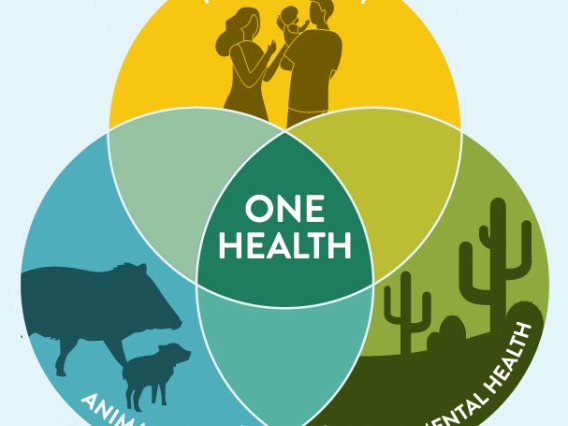Areas of Study
At the College of Public Health, students engage in a diverse array of areas of study aimed at addressing complex health challenges. From epidemiology and biostatistics to environmental health sciences and health policy, our curriculum equips students with the knowledge and skills needed to promote population health and address pressing public health issues. With a focus on interdisciplinary collaboration and evidence-based practice, students explore topics such as global health, community health promotion, health administration, and more, preparing them for impactful careers in public health practice, research, and policy-making.

Biostatistics
Biostatistics is the application of statistical methods to research in biology, public health, and medicine. Biostatisticians collaborate with scientists and investigators in nearly every area related to health and science, and also contribute to the design of scientific studies to ensure the most appropriate and most powerful scientific hypotheses are tested.

Environmental Health Sciences
Environmental Health Sciences is an interdisciplinary field focused on understanding the effects of environmental and occupational exposures on human health. Our research and educational programs provide a thorough overview of the many aspects of environmental health – ranging from measuring pollutants in communities and workplaces to understanding behavioral approaches to preventing illness/injury in workplaces.

Epidemiology
Epidemiology is a fundamental science of public health with a major focus on health problems in communities, groups or aggregates of people. It is the scientific discipline concerned with the causes and prevention of human disease. It has been designed for students whose careers will focus on conducting investigator-initiated and collaborative epidemiologic research.

Family and Child Health
Family and Child Health focuses on issues that affect women of child-bearing age, infants, children, adolescents, and families. Coursework emphasizes maternal and child health in a global context, government policies affecting women and children, adolescent health, and nutrition.

Health Behavior Health Promotion
Health Behavior Health Promotion focuses on health education, health promotion, and disease prevention. The discipline emphasizes three core areas: (1) Sociocultural factors that influence health and health behavior, (2) Scientific and theoretical basis for planning, implementing, and evaluating effective public health education, health promotion and disease prevention programs, and (3) The goal of facilitating behavior change for a healthy life.

Health Services Administration
Health Services Administration focuses on preparing students to develop the skills needed to work in a variety of health related organizations such as health systems, health agencies, third party payers and/or health care supply chain organizations in both governmental and non-governmental settings.

One Health
The One Health paradigm recognizes that multi-disciplinary efforts at the intersection between humans, animals and their respective environments are needed to solve complex diseases and public health concerns.

Public Health Policy and Management
Public Health Policy and Management focuses on the effective and efficient management of public health programs, as well as policy advocacy, analysis, and implementation.

Public Health Practice
Public Health Practice focuses on preparing students to develop the public health skills needed to work in a variety of governmental and non-governmental settings including the local, county and state departments of health, non-profit organizations, hospitals, and community health centers.

